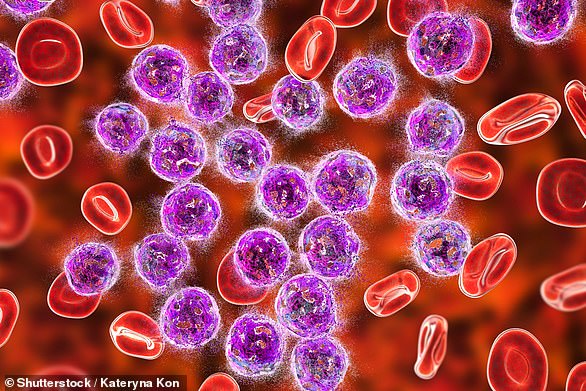Toddler was sent home by GPs who said she had flu before being diagnosed with fatal cancer
A toddler whose parents were told she had a virus when she could no longer walk later discovered she had cancer.
Gracie McHugh and her family’s lives were turned upside down when she was diagnosed with acute lymphocytic leukemia at the age of two.
The youngster from Halifax, West Yorkshire initially became unwell and was taken to A&E with flu-like symptoms and was later sent home in January 2023.
But when she returned home, her condition rapidly deteriorated, leaving her unable to walk and developing a worrying rash.
Her concerned mother Helen Jackson, 39, started searching online for her daughter’s symptoms after she started screaming in pain.
When they returned to hospital, a blood test revealed the toddler had a devastating cancer diagnosis, leaving her entire family in ‘total shock’.
Just days before being diagnosed with blood cancer, the happy two-year-old had been playing and dancing.
After receiving a blood transfusion, Gracie was transferred to Leeds General Infirmary where she underwent ten days of intensive chemotherapy and steroids and physiotherapy to learn to walk again.
Her mother Helen said: “It was such a dark time when Gracie was diagnosed. Luckily she was too young to understand what was going on.
Gracie McHugh was just two years old when she was diagnosed with acute lymphocytic leukemia
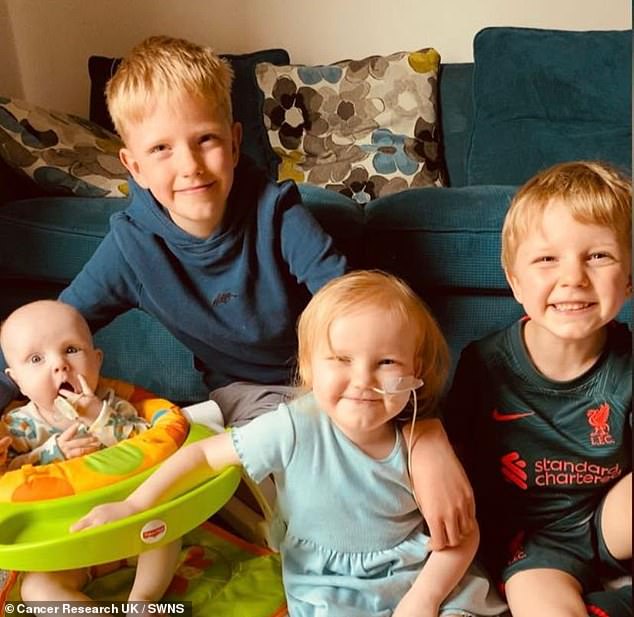
Her family was shocked by her diagnosis as the youngster had been playing and dancing normally just a few days earlier
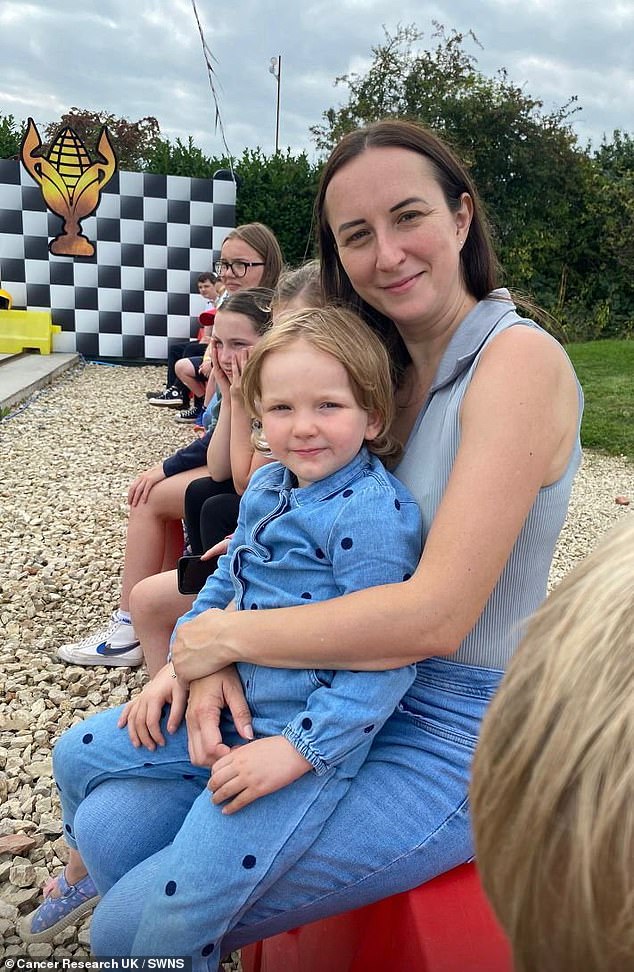
Although it has been a ‘dark time’ for the family, mum Helen (pictured) is hopeful the ‘end is in sight’ as Gracie will complete her treatment
‘But it was a difficult time for her brothers, who had so much to deal with, because we had to leave them with other relatives during our hospital stay.’
The family is also supported by a children’s cancer charity Candle lighterswho are praised by Helen for being a ‘shoulder to cry on’.
The McHugh’s have also raised more than £7,000 for charity by running the Manchester Half Marathon in October 2023.
Gracie has since been signed up for a Cancer Research-funded clinical trial called ‘Altogether-1’, which aims to see if changing treatments works better for children and young people with ALL.
Gracie will complete the maintenance phase of her treatment in March, but was diagnosed with osteopenia (low bone density) in her legs, which has left her legs weakened by the treatment.
The mother-of-four said: ‘The end is now in sight as Gracie’s treatment will soon be completed and we have so much to look forward to this year.’
In addition to a star-shaped trophy, Gracie also received a gift certificate, a t-shirt and a certificate signed by celebrity chef Jean-Christophe Novelli and TV personality Dr. Ranj.
Helen, a child therapist, added: ‘Cancer Research UK is such a fantastic charity to recognize these wonderful and courageous children and to help fund the clinical trial that Gracie took part in.
“We couldn’t be prouder that Gracie has received a star for being so incredibly brave throughout her treatment.”
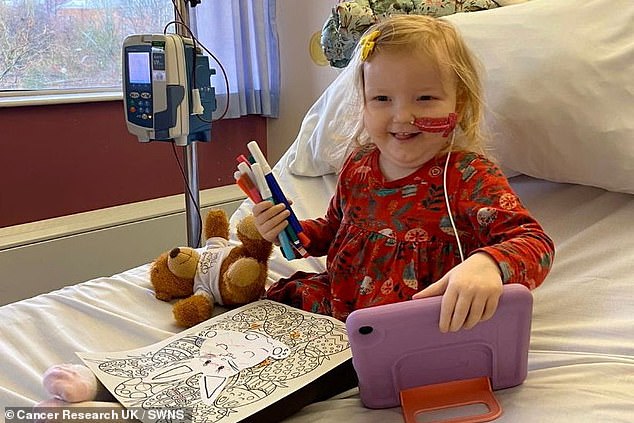
Gracie has since been enrolled in a Cancer Research-funded clinical trial called ‘Altogether-1’, which aims to see if changing treatments works better for people with ALL
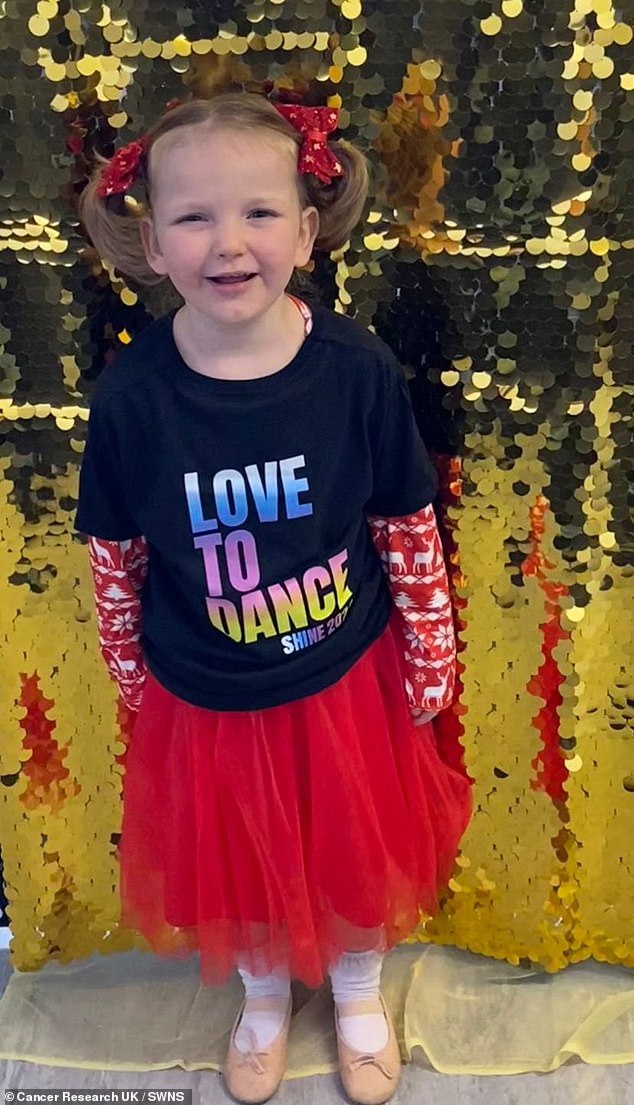
The McHugh’s have also raised more than £7,000 for children’s cancer charity Candlelighters by running the Manchester Half Marathon in October 2023
Jane Bullock, spokesperson for Cancer Research UK, said: ‘A cancer diagnosis is heartbreaking at any age, but it can be especially difficult for young people.
“Gracie is a true star who has been through so much at such a young age and it was an absolute privilege to celebrate her bravery with a Star Award.
‘Cancer in children and young people is different to cancer in adults, in terms of the types of cancer and the impact of treatment – and many can experience serious long-term side effects.
‘That’s why we support targeted research to find new and less toxic ways to beat this devastating disease.
‘We are urging people in West Yorkshire to nominate inspiring children like Gracie for a Star Award now, so that many more children can receive the recognition they so richly deserve.’

